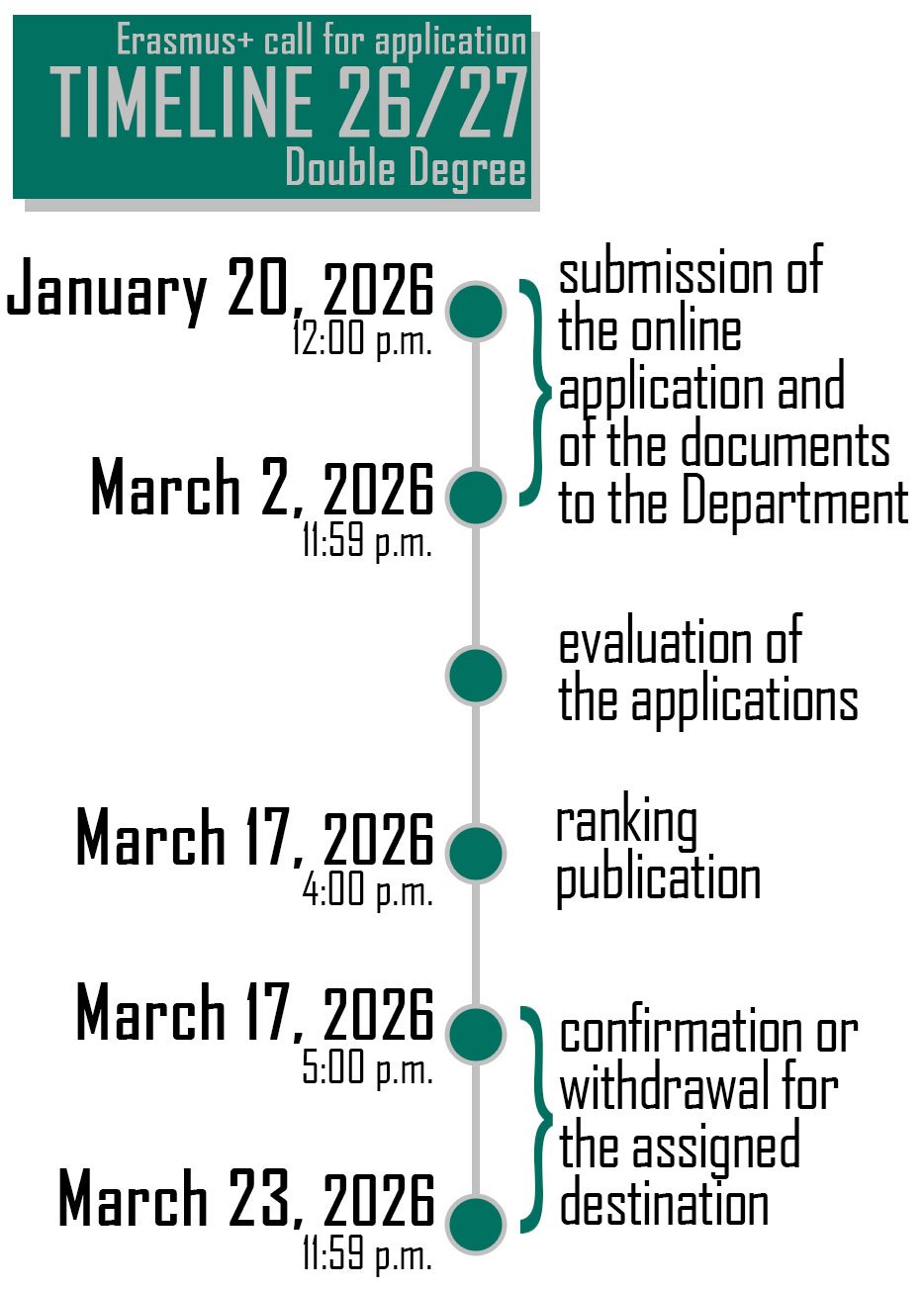Studying abroad is a unique opportunity of personal enhancement not only from the academic and professional point of view, but also in terms of language learning, intercultural skills, self-reliance and self-awareness. A double degree (DD) diploma gives more chances to find a job in international companies and organizations, as well as in any industry requiring European minded candidates.
That is why the University of Insubria offers the opportunity to join double-degree programs in partner institutions across Europe to students enrolled in different Master programs, namely:
- Double Degree with the Bonn-Rhein-Sieg University of Applied Sciences in Bonn – Germany
- Double Degree with the Université Nice Sophia Antipolis – France
- Double Degree with the Friedrich Schiller University in Jena – Germany
- Double Degree with the Université de Bordeaux – France
- Double Degree with the University of Fulda – Germany
- Double Degree with the Kaunas University of Technology – Lithuania
- Double Degree with the Linnaeus University in Växjō and Kalmar – Sweden
- Double Degree with the University of Nantes – France
- Double Degree for specialists in translation Italian-Spanish with the University of Seville – Spain
- Double Degree with the University of Chemistry and Technology in Prague– Czech Republic
- Double Degree with Zurich University of Applied Science - Swiss Confederation
- Double Degree with the Linnaeus University in Växjō and Kalmar – Sweden

All the students enrolled in the first year of the above mentioned Master courses may apply for a Double Degree Program. Applications will be managed directly by the Departments every year (in January/February). The selected candidates will spend their mobility period at the partner institution following the double degree agreement’s contents.
The call 2026/2027 is available here.
PLEASE NOTE: A very important requirement for students willing to participate in the selection is the advanced knowledge of the English language and/or the language of the host Country: some host institutions accept mobilities only for candidates duly presenting a language certification.
The Double Degrees ranking lists are published on this website (“Commissione, svolgimento ed esiti” menu).
The assignees must confirm and accept the assigned destination.
PLEASE NOTE: At the end of the procedure students who have not confirmed their destination will be considered as “renunciative”; students who have rejected their destination, despite being among their preferences, will be considered as “renunciative”: the decision to reject a destination does not imply a penalty but is irrevocable, i.e. it involves the exclusion from any subsequent location reassignment included the ones left.
If you don’t want to lose an important opportunity to learn more… participate in the Insubria Erasmus+ Day.
Every year, after the publication of the call for applications, an Erasmus Day is held to present the Erasmus project and, in particular, the new mobility call.
For the 2026/2027 calls, the meetings took place on:
- January 26, 2026 at 3:00 PM in Varese, room 10 MTG, Bizzozero (video recording)
- January 27, 2026 at 11:00 AM in Como, room S.2.7, Sant’Abbondio (video recording)
- January 29, 2026 at 3:00 PM (online) in English (video recording)
All the sessions were recorded, and you can watch the videos by clicking the “video recording” links.





